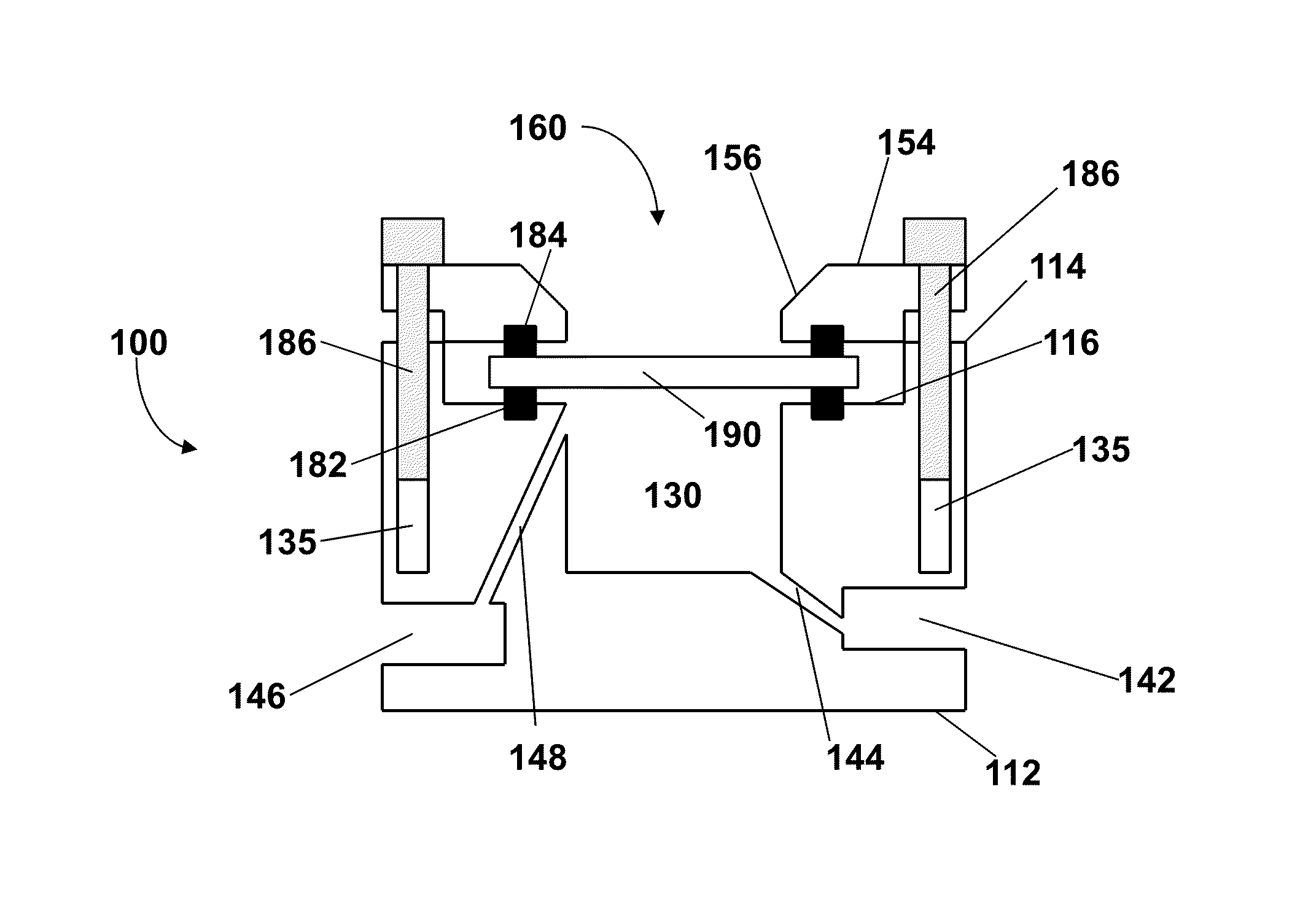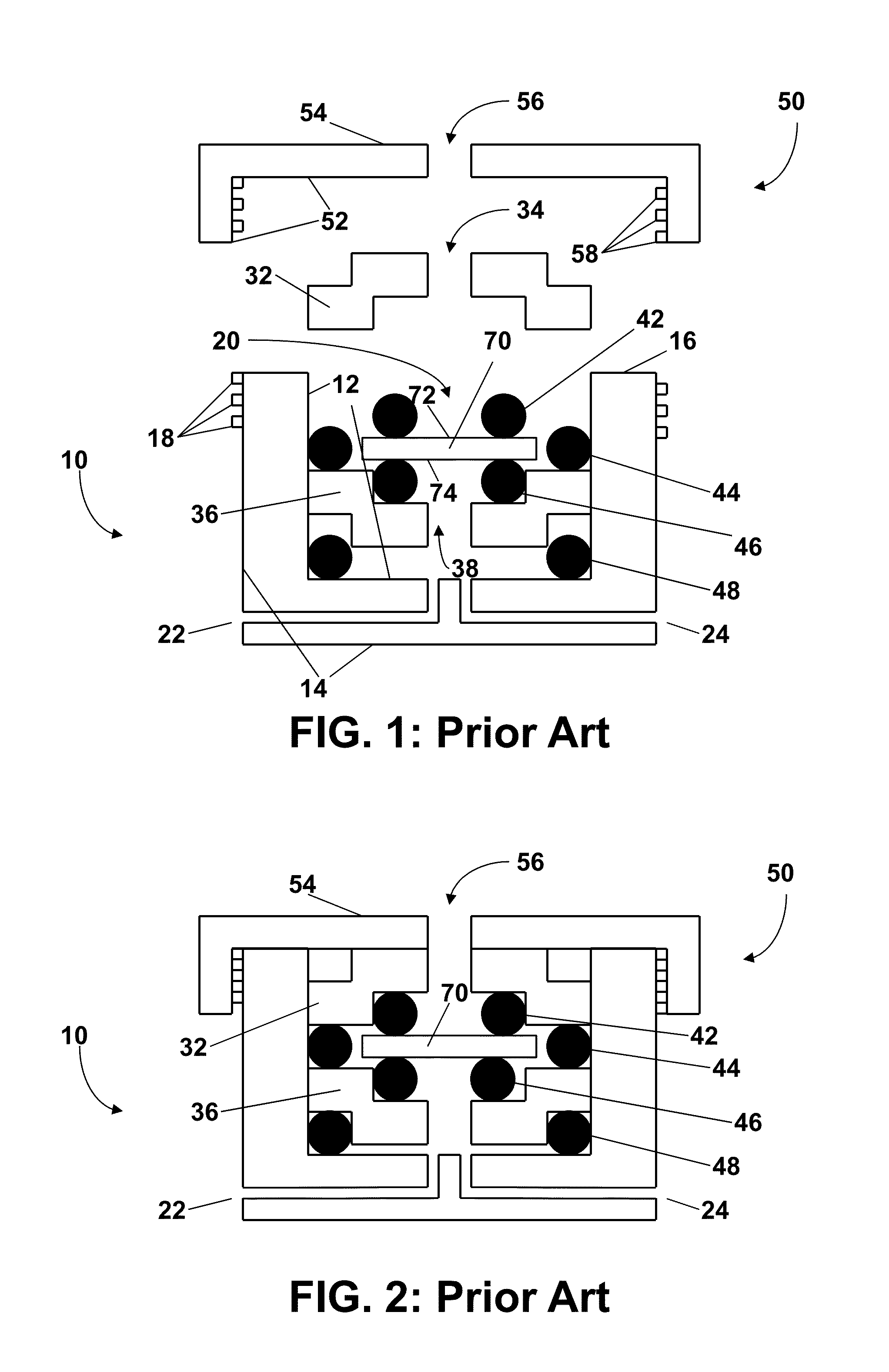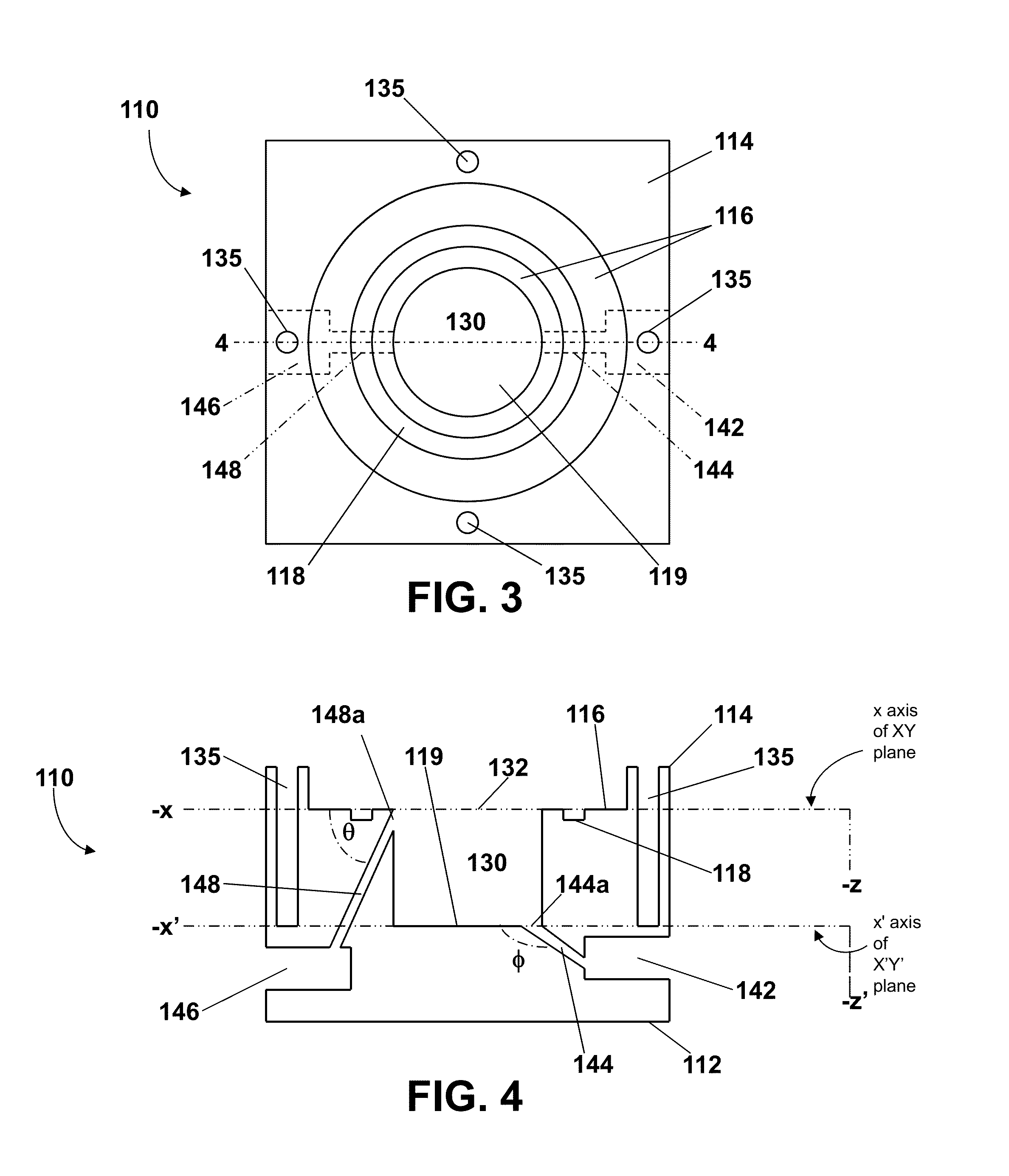Permeability flow cell and hydraulic conductance system
a flow cell and flow cell technology, applied in the direction of permeability/surface area analysis, instruments, suspension and porous material analysis, etc., can solve the problems of less protection, less permeability of the enamel covering, and the existence of the pashley method
- Summary
- Abstract
- Description
- Claims
- Application Information
AI Technical Summary
Benefits of technology
Problems solved by technology
Method used
Image
Examples
example 1
[0169]An in vitro study suing prepared dentin samples to evaluate treatment with formulations containing varying amounts of potassium oxalate (KO) as shown in Table 1.
[0170]Human dentin samples from molar teeth are used in the study. The samples are cut from the crown resulting in about one to three samples per tooth, each having a diameter of 10.7±0.5 mm and a thickness of 0.54+ / −0.05 mm. The above cutting process leaves behind a smear layer on each surface of the dentin sample. The smear layer is removed by etching each dentin sample with 6% citric acid for 3 minutes in conjunction with sonication (sonications in this Example 1 and Example 2 were performed using a SharperTek CD-4800 ultrasonic cleaner supplied by Sharpertek USA [Pontiac, Mich.]). After etching, the dentin samples are again sonicated as described above in di-H2O for 1.5 minutes to thoroughly clean the sample. The dentin samples, as described above, exhibit magnification properties when viewing through one side of t...
example 2
[0208]The versatility of the high throughput apparatus (including the flow cell) and methods of the present invention is further illustrated by its use in the treatment “challenge” procedure described below. The time period from the removal of the dentin sample from the inventive flow cell to obtaining reliable flow rate data (after reincorporation of the dentin sample into the inventive flow cell and apparatus according to the procedure outlined below) can be less than 5 minutes, optionally 3 minutes, optionally 2 minutes, or optionally 1 minute. The reliability of the flow rate data results from the dependability, reliability and predictability of the setup and the performance of the apparatus (including the flow cell) of the present invention, coupled with the recognition that data integrity is not compromised.
Treatment Challenge Procedure
[0209]The treatment technologies applied to dentin samples (e.g., the formulations of Table 1) can be challenged (i.e., brushing, acid, sonicat...
PUM
| Property | Measurement | Unit |
|---|---|---|
| angle | aaaaa | aaaaa |
| angle | aaaaa | aaaaa |
| pressure | aaaaa | aaaaa |
Abstract
Description
Claims
Application Information
 Login to View More
Login to View More - R&D
- Intellectual Property
- Life Sciences
- Materials
- Tech Scout
- Unparalleled Data Quality
- Higher Quality Content
- 60% Fewer Hallucinations
Browse by: Latest US Patents, China's latest patents, Technical Efficacy Thesaurus, Application Domain, Technology Topic, Popular Technical Reports.
© 2025 PatSnap. All rights reserved.Legal|Privacy policy|Modern Slavery Act Transparency Statement|Sitemap|About US| Contact US: help@patsnap.com



